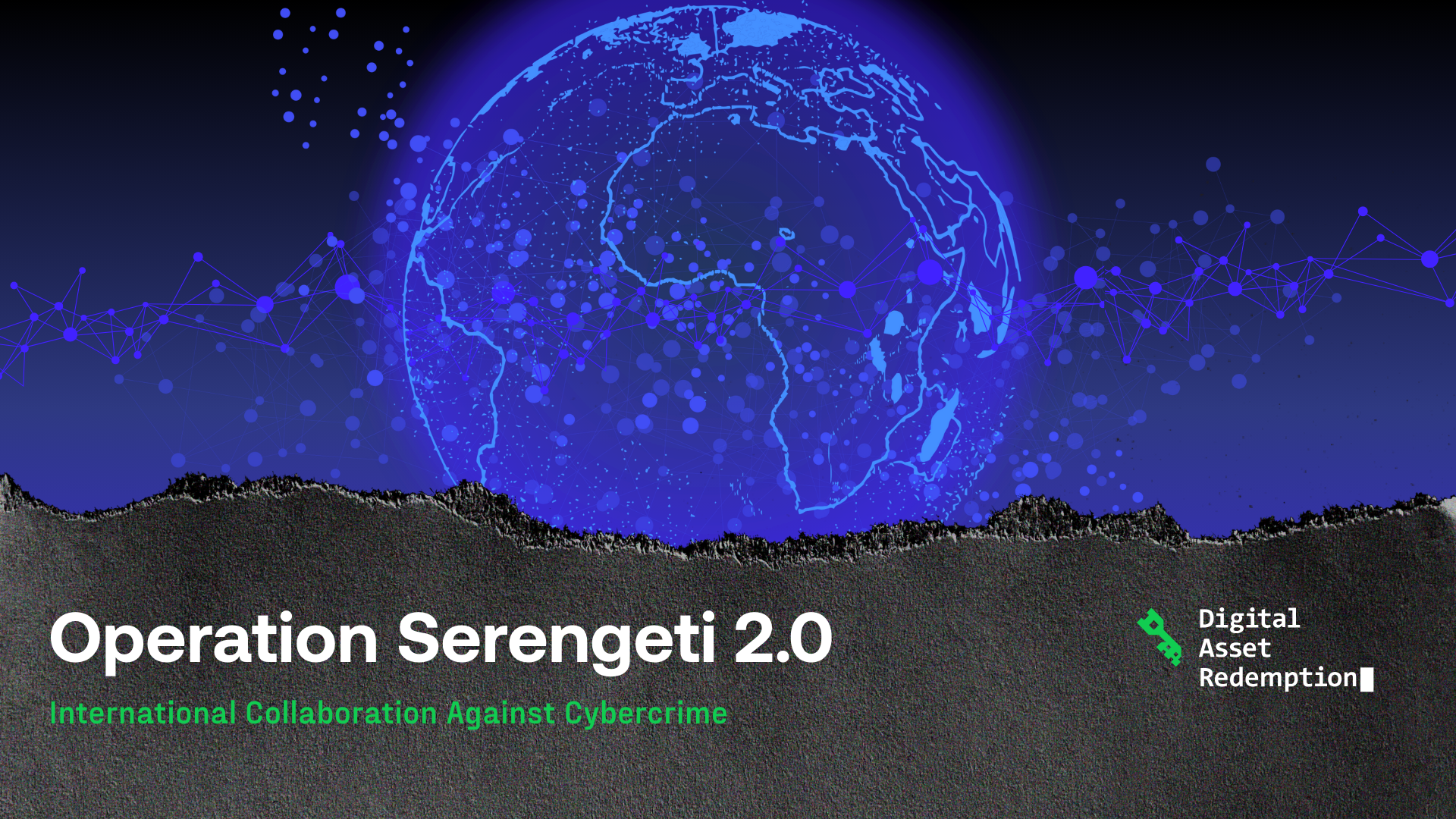International cooperation between several African countries and the UK, Ghana and the US, and the US and India was key in recent cybercrime busts.

On August 22, 2025, the International Criminal Police Organization (Interpol) announced the success of Operation Serengeti 2.0. The project, which fell under the jurisdiction of the African Joint Operation against Cybercrime (AJOC), ran for only 3 months from June to August, but recovered 97.4 million USD and disrupted 11,432 malicious infrastructures (operated by 1,209 cybercriminals). These criminals had a wide reach, amassing almost 88,000 victims through several scams in cryptocurrency, inheritance, and even immigration.
The project required coordination from law enforcement from all over Africa (Angola, Benin, Cameroon, Chad, Côte D'Ivoire, Democratic Republic of Congo, Gabon, Ghana, Kenya, Mauritius, Nigeria, Rwanda, Senegal, South Africa, Seychelles, Tanzania, Zambia and Zimbabwe), and the UK, along with coordination with private sector organizations. These groups shared important information like suspicious domains and C2 servers, and provided guidance and training with the relevant authorities, helping the investigators find offenders efficiently.
This guidance was developed to educate and empower the investigators, so they could grow the skills necessary to address these crimes on their own. The International Cyber Offender Prevention Network (InterCOP) specifically aided this operation by bolstering the abilities of these countries to prevent cybercriminal activity. Interpol’s 2025 Africa Cyberthreat Assessment Report found that while “more than 30 per cent of all reported crime in Western and Eastern Africa” was cybercrime, “90 per cent of African countries report needing ‘significant improvement’ in law enforcement or prosecution capacity.” The most reported cyber threats, online scams, ransomware, business email compromise and digital sextortion, were some of the areas that Operation Serengeti 2.0 set out to tackle.
Angolan authorities broke up 25 cryptocurrency mining centers, operating on 45 illegal power stations and IT equipment worth more than 37 million USD. These materials, in addition to the 60 Chinese nationals who unlawfully validated transactions on the blockchain to create cryptocurrency, have been taken in by the government. While the cyber criminals were arrested, the IT equipment will likely be repurposed to support power distribution in less accessible areas.
Zambia dismantled another expensive crypto scheme. Scammers promised their victims high-yield returns on investments in cryptocurrency, and then directed them to download several apps to invest. The authorities identified 65,000 victims, who they estimate lost 300 million USD altogether. 15 individuals have been arrested, but the investigation continues as the collected evidence (domains, mobile numbers, and bank accounts) points to international conspirators. Zambian enforcement also shut down a scam center and a suspected human trafficking circuit by working with their immigration department, confiscating 372 fake passports from seven countries.
Côte d'Ivoire similarly dismantled a transnational scam. They arrested the primary suspect behind an inheritance scheme that originated in Germany. Victims were conned into paying around 1.6 million USD to claim falsified inheritances. The authorities successfully seized vehicles, electronics, jewelry, cash, and documents.
The success of Operation Serengeti 2.0 underlines the importance of cooperation across countries and law enforcement organizations to stop cybercrime. The Secretary General of Interpol, Valdecy Urquiza, reiterated this idea in the press release: “Each INTERPOL-coordinated operation builds on the last, deepening cooperation, increasing information sharing and developing investigative skills across member countries. With more contributions and shared expertise, the results keep growing in scale and impact. This global network is stronger than ever, delivering real outcomes and safeguarding victims.”
While this project did not involve the US, the US has also recently worked with an African country to take down a major case of cyber fraud. On August 8, 2025, the Federal Bureau of Investigation (FBI), published a press release announcing the extradition of three Ghanaian nationals (out of four who were charged) for their participation in a fraud ring that “stole more than $100 million from victims via romance scams and business email compromises.” Isaac Oduro Boateng, Inusah Ahmed, Derrick van Yeboah, and Patrick Kwame were charged as the leaders of the cybercriminal organization that targeted Americans, particularly “vulnerable older men and women who were tricked into believing that they were in online romantic relationships with people who were, in fact, fake identities assumed by members of the conspiracy.”
Victims were tricked into sending money to these fake identities, even helping to launder other stolen money in some cases. These profits were sent to West Africa, to the ‘chairmen’ of the ring, namely Boateng and Ahmed. While Asare has not yet been apprehended, the individuals are all facing charges of wire fraud conspiracy, wire fraud, laundering conspiracy, conspiracy to receive stolen money, and receipt of stolen money.
The extraditions required collaboration from Ghana’s Economic and Organized Crime Office, the Ghana Police Service-INTERPOL, Ghana’s Cyber Security Authority (CSA), and Ghana’s National Intelligence Bureau. The FBI specifically credited Ghana’s CSA’s “technical guidance, investigative support, and coordination efforts” as “instrumental in tracking digital footprints, preserving electronic evidence, and ensuring that the perpetrators were held accountable.”
This week saw yet another joint effort with the US take down a transnational cybercrime syndicate. On August 27, 2025, the US Embassy in India announced the news in a post on X: “A big week for #USIndia law enforcement collaboration. India’s CBI [Central Bureau of Investigation], in close coordination with the U.S. @FBI, dismantled a transnational cybercrime syndicate that defrauded U.S. nationals of nearly $40M through tech-support scams — and arrested key figures behind the cyber fraud network. Through shared intelligence and coordinated action, both our agencies are working together to dismantle international networks, prevent future scams, and keep our citizens safe. Thank you for your partnership and support, @CBIHeadquarters”.
Globally, international collaboration has proven to be key in dismantling cybercriminal networks. Operation Serengeti 2.0, and other solved transnational cybercrime cases in the US and Ghana and India, demonstrates that a united approach to finding and capturing cyber criminals can make the online world a safer place.